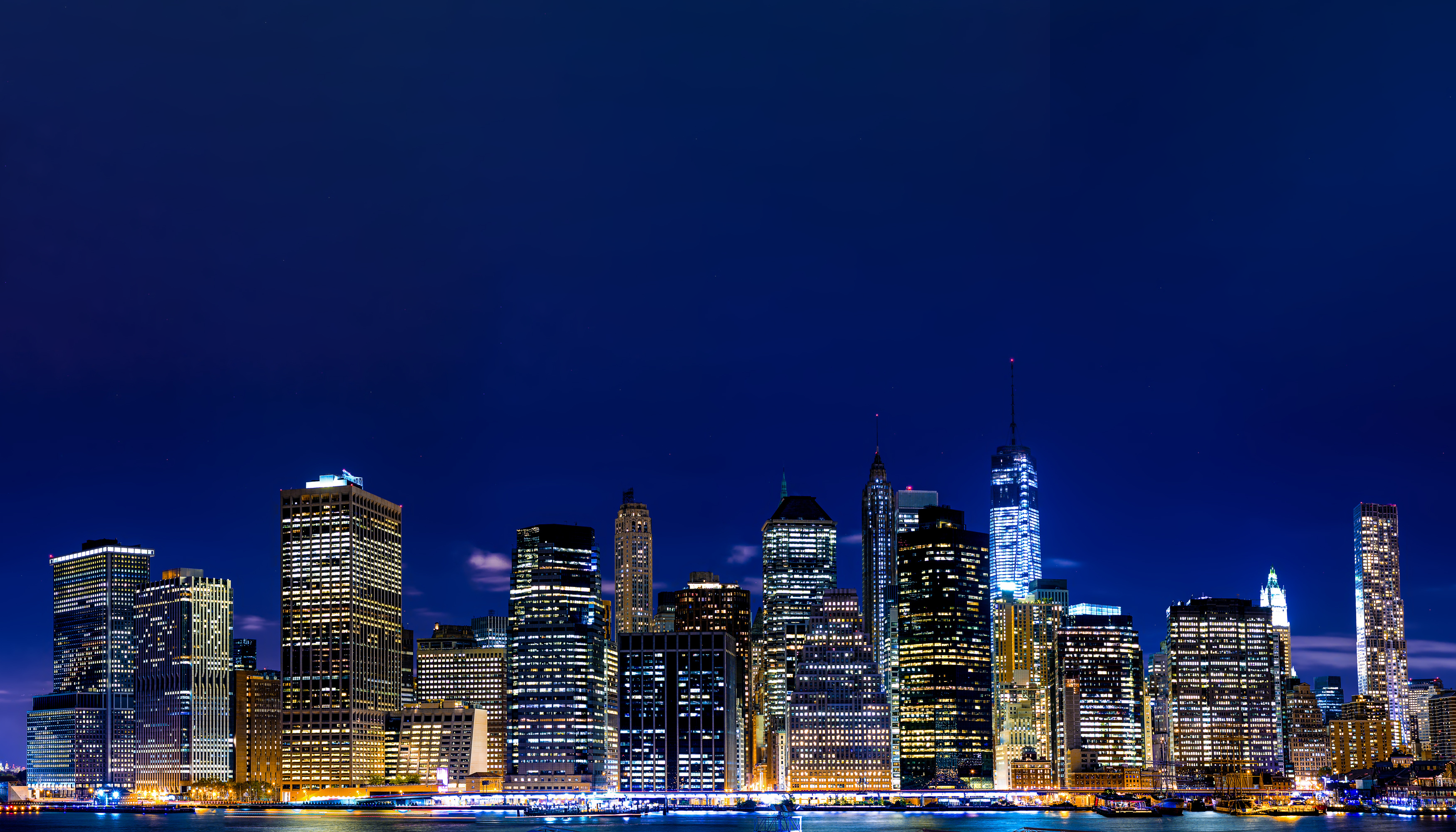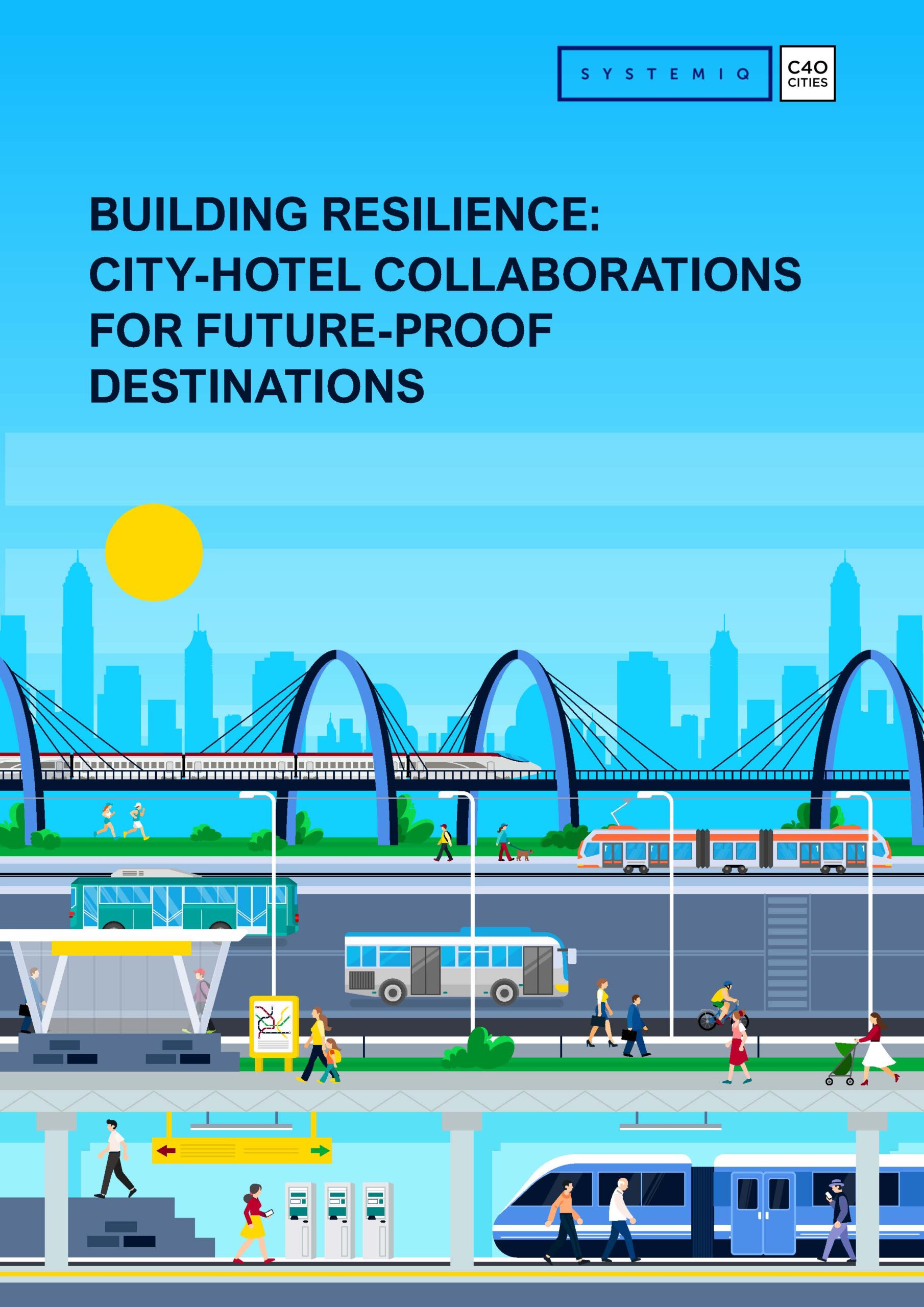Tourism is vital to cities – but it must evolve. City mayors and tourist businesses, particularly hotels, have a common interest in crafting new, sustainable business models.
As Systemiq’s Sophie Herrmann explains, public-private collaborations can make cities more attractive and resilient, and lead on ambitious, place-based climate action.
Paris, Barcelona, Venice, New York – how do you prevent a dream destination from slipping into over-tourism? Headlines often focus on social concerns and the competing needs of residents and visitors. However, the accelerated growth in tourism is also increasing environmental pressures on these hotspots – pressures which, as climate impacts intensify, may make them unattractive for inhabitants and travellers alike. The trend is not confined to the biggest destination cities, and poses problems for the whole industry. Your favourite city-break may soon be at breaking point.
However, our recent analysis – with C40 Cities – starts from a more positive place. Tourism remains one of the most rapidly expanding sectors in urban economies; it stimulates infrastructure development and economic growth. Both city governments and industry itself have historically encouraged ever-bigger visitor numbers and spending. Now, as civic authorities increasingly develop approaches to climate adaptation and mitigation – and rethink what makes urban life sustainable and attractive – they’re also reconsidering the role that hospitality should play.
That shift reveals a problem and a potential solution. Through C40 Cities, almost 100 cities worldwide have committed to cut emissions in line with limiting global warming to 1.5°C. In many cities, however, the public sector accounts for well under 10% of the city’s emissions. To achieve their targets, cities need to find willing business partners. “Hotels are not only vital economic engines for cities but also significant contributors to carbon emissions and resource consumption”, says Mark Watts, the Executive Director of C40. “From reducing energy consumption and waste generation to promoting sustainable transportation and enhancing resilience, there are many opportunities for mutual benefit.”
Meanwhile, the media and public are increasingly aware of the environmental and climate downsides of urban tourism. Hotels that are not decarbonising at the pace required, face mounting reputational, policy and financial risks, including the risk of having to close non-compliant assets.

Jobs
Only 10% of jobs in tourism can be considered green jobs

Waste
Hotels are major users of single-use plastics

Water
In some cities, tourism uses 8 times more water per person than average

Food
1 in 6 meals in hospitality is thrown away
Collaboration between cities and hotels offers a route to the rapid, creative solutions that both need.
Tourism is a powerful partner for this level of systemic change – precisely because it cuts across many city systems, notably transport, accommodation, food and water. Collaboration between cities and hotels offers a route to the rapid, creative solutions that both need. “Cities are natural allies in our efforts to future-proof our model”, explains Brune Poirson, the Chief Sustainability Officer at Accor. “I am convinced that by stimulating collaboration on our shared sustainability goals, we can contribute to the resilience and attractiveness of destinations, to the benefit of residents and visitors alike.”
How will the customers respond? Perhaps because much of the industry’s loss and waste goes unseen, there’s significant potential for changes that remain ‘invisible’ to the consumer. From 2018 to 2022, Sydney’s Sustainable Destination Partnership – a collaboration between hotels, government, and the broader tourism sector – cut emissions from partner organisations‘ properties by one-third, and almost halved potable water use.
Yet selling tourism as sustainable can work too. The city of Copenhagen promotes eco-certified stays, and works with hotel receptionists and guides to inspire tourists to enjoy a sustainable visit. 70% of hotels are eco-certified. And, tellingly, two-thirds of Copenhageners express a positive outlook on tourism, compared to 42% in similar European cities.
Our white paper encourages cities and hotels to future-proof destinations by developing in-house strategies for climate mitigation and adaptation, and to support sector-wide roadmaps too. As well as monitoring and reporting on key sustainability KPIs, hotel chains need to look further and establish industry-level frameworks for sustainable hospitality. From repurposing old buildings and infrastructure for tourism, to promoting regenerative and city-grown food, collaborations can effect change – both within hotel value chains and beyond. Here are three examples.



Together, cities and hotels can do more than halt the damage caused by old-style city tourism: we can fashion forms of tourism whose success will make cities increasingly attractive, sustainable and resilient over time. Find out more by reading our joint paper with C40 Cities.



